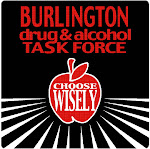Towns try to punish public marijuana use
Officials want children shielded
Excerpt from Boston Globe
March 25, 2009
Dozens of Massachusetts cities and towns are taking steps to impose stiff new fines for smoking marijuana in public and even to charge some violators with misdemeanors, a trend that critics say subverts the state ballot question passed overwhelmingly last fall to decriminalize possession of small amounts of marijuana.
In recent weeks, at least seven communities - Duxbury, Lynn, Methuen, Medway, Milford, Salem, and Springfield - have passed bylaws that target people who light up in public. And two dozen cities and towns expect to vote this spring on similar measures, which proponents liken to local open container laws that ban drinking alcohol in public.
Police officials say they want to discourage flagrant marijuana smoking, particularly in public parks, schoolyards, and on beaches where young children gather. While last year's ballot initiative reduced possession of an ounce or less from a misdemeanor to a civil infraction carrying a $100 fine, police say that some marijuana smokers mistakenly believe that the voters legalized the drug entirely.
"If you're smoking marijuana in front of schoolchildren, to me that's a little bit more serious than smoking a joint by yourself out in the middle of the woods," said Salem police Captain Brian Gilligan. His city recently authorized officers to fine public smokers $300 in addition to the $100 fine for possession. The Salem bylaw also lets officers give them a misdemeanor summons, although Gilligan predicted that few will get them.
Question 2 passed by a vote of 65 to 35 percent, making Massachusetts one of a dozen states to decriminalize possession of small amounts of marijuana, Bernath said. Proponents of the change, including billionaire financier George Soros, who spent more than $400,000 in favor of decriminalization, said that it would ensure that those caught with small quantities would avoid the taint of a criminal record.
A statewide referendum specifically said each city and town could pass bylaws banning public use of marijuana, and communities across the state have started doing that. They are relying on a sample bylaw provided by Coakley's office, which says fines can be imposed, a criminal penalty, or both, in addition to the $100 possession fine.
Coakley's office reviews bylaws enacted to make sure they pass constitutional muster, but takes no position on penalizing people who smoke in public, said spokeswoman Emily LaGrassa.
In recent weeks, Duxbury's Town Meeting overwhelmingly approved imposing a $300 fine on people who smoke marijuana in public. Methuen's City Council passed a bylaw to impose a $100 fine on people who light up at parks, playgrounds, on school grounds, or a public beach.
Mayor William M. Manzi III of Methuen said he sponsored the measure because he wants to keep those areas free of marijuana and alcohol. "You can already be fined under a local ordinance for having an open container of Budweiser," he said.
To show that Methuen was being even-handed, he added, the council increased the fine for drinking alcohol in public from $50 to $100, the same as the fine for public marijuana smoking.
Some communities, however, are also authorizing officers to give people who smoke in public a misdemeanor summons.
Residents attending Milford's Town Meeting, for example, recently approved such a bylaw. The measure also imposes a fine of $100 for a first offense, $200 for a second offense, and $300 for subsequent offenses.
Police Chief Thomas O'Loughlin of Milford said he favored decriminalization last fall. But he supported the local bylaw because police need a tool to contend with young people who flout state law by smoking in public, sometimes in groups that make it difficult to determine who owns the marijuana.
"In the circumstances where you have a dozen young people or two dozen young people out in a park at night, OK, who possesses what?" he said.
But critics of the bylaws are skeptical.
Steven Epstein, a Georgetown lawyer and founder of the Massachusetts Cannabis Reform Coalition, said he believes the efforts amount to recriminalization and are "all motivated by police chiefs who lost their power when they no longer had the arbitrary power to arrest people for possessing or using marijuana."
Monday, March 30, 2009
Subscribe to:
Post Comments (Atom)

No comments:
Post a Comment